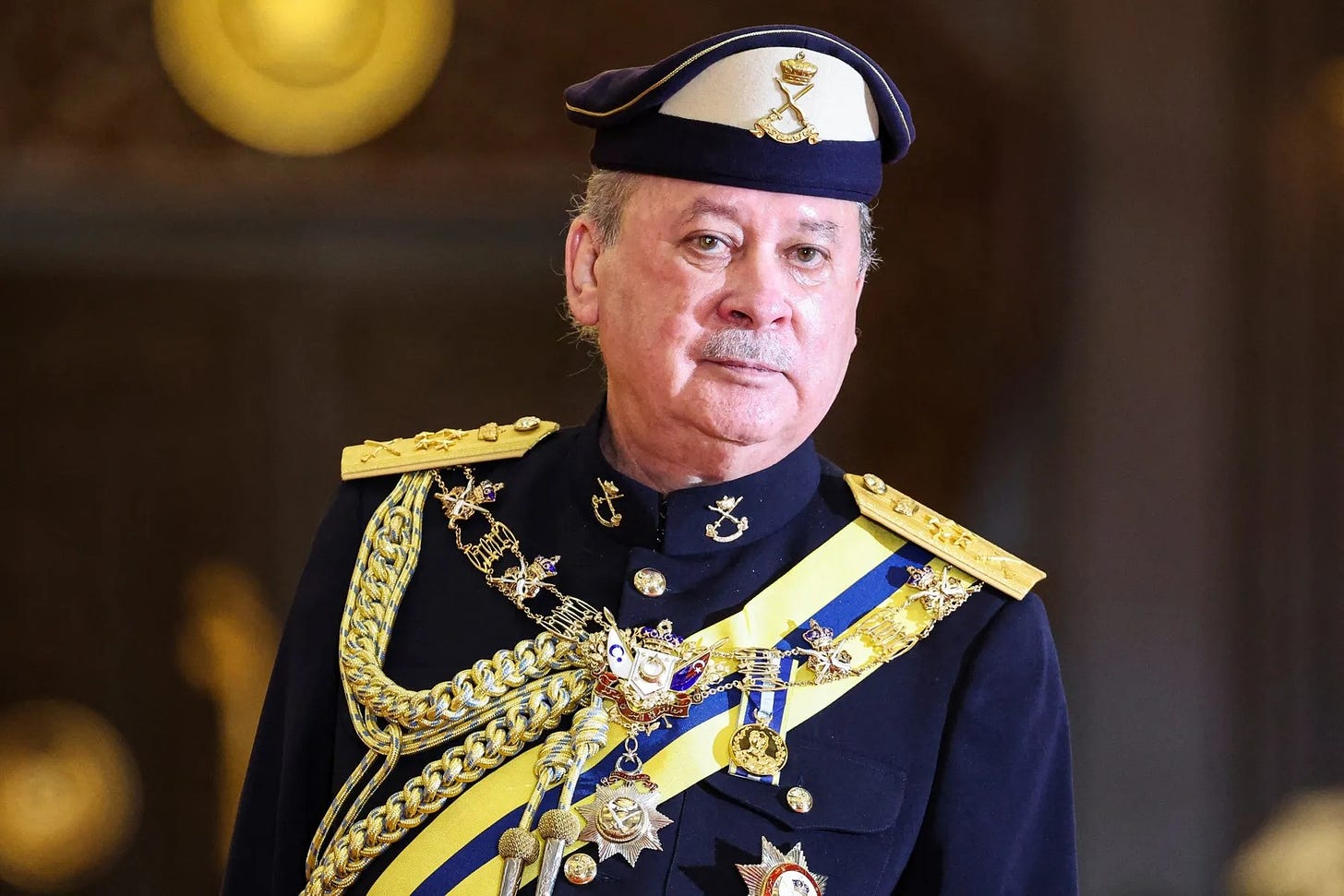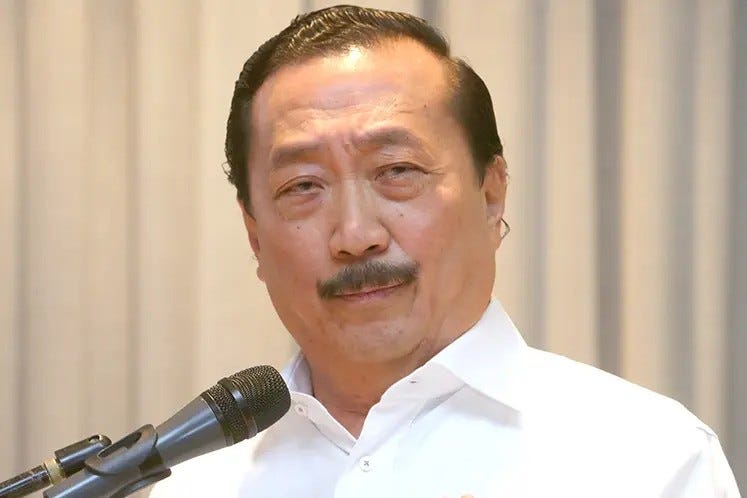The award of Malaysia’s RM16.5 billion (US$3.65 billion) second 5G network rollout, announced on November 1, is a uniquely Malaysian affair because the contract goes to U Mobile Sdn Bhd, a joint venture between a longtime government crony and royalty. In Malaysian jargon, this is known as an Ali-Baba arrangement in that ethnic Malays, or Alis, by custom must be cut into business contracts, while Babas, or Straits-born Chinese, do the work. In this case, the Ali and the Baba are fabulously rich and phenomenally connected.
The first phase of the 5G system has been built by a taxpayer-funded company, Digital Nasional Bhd (DNB), a special-purpose vehicle owned by the Ministry of Finance and launched in 2021 to drive the development of IT infrastructure as a wholesale network service to other telecoms companies. Both the digital and finance ministries have been left out of the bid process for the second phase, according to ministry officials who spoke to other media, imperiling DNB’s financial existence. As such, the award of the second phase to Ali and Baba is yet another indication that the government of Anwar Ibrahim has veered considerably away from its reformasi roots, with substantial potential damage to the taxpayers.
The king – the Ali – is Ibrahim Iskandar, 66, the Sultan of Johor, who is said to be worth more than US$5.5 billion and whose interests, in addition to owning 25 percent of U Mobile, include 4 percent of Maharani Energy Gateway, a Johor oil and gas concern; 21 percent of Country Garden Pacific View Sdn Bhd, a real estate venture; Berjaya Assets; Berjaya Time Square and investments in Singapore land, including Tyersall Park, a large jungle area next to the Botanic Gardens. Investment in Johor is said to often be looked on favorably if it includes a joint venture with the sultan. In this case, he holds 22.3 percent of U Mobile.


The crony –the Baba – is Vincent Tan Chee Yioun, 72, the billionaire founder and chairperson of Berjaya Corporation, who has been close to government leaders since he started private companies in trading, credit, general insurance and real estate in his 20s and in 1982 famously became known as Hamburger Tan as managing director of McDonald’s Malaysia. Berjaya’s wide-ranging interests, many of them said by critics to have been obtained through his close connections to the government, include interest in internet-related businesses, water utilities, media, retail, and telecommunications. Berjaya Infrastructure owns 2 percent, U Telemedia, controlled by Berjaya owns 7.3 percent, and Singer Malaysia, owned by Vincent Tan, owns 6.1 percent.
The third U Mobile partner is Temasek Holdings Ltd, Singapore’s state-owned investment firm, with a net portfolio of US$288 billion as of 2024, with S$33 billion divested and S$26 billion invested during the year according to its website. It holds 48.3 percent of U Mobile through Straits Mobile Investments Pte Ltd. Smaller interests own other bits of U Mobile.
“The Malaysian Communications and Multimedia Commission (MCMC), in the interest of maximizing the true potential of 5G technology for the benefit of rakyat, the industry, and the nation, has rigorously undertaken processes encompassing detailed deliberations on technical and commercial aspects, among others to select the mobile network operator that will implement Malaysia’s Second 5G Network, the media commission said in a prepared release. “U Mobile Sdn Bhd, subject to the approval of MCMC, is allowed to collaborate with other MNOs in the implementation of Malaysia’s Second 5G Network. MCMC will continue to oversee the progress of the implementation of Malaysia’s Second 5G Network to ensure total compliance with all regulatory requirements as provided for in the Communications and Multimedia Act of 1998.”
The award of the contract, however, has rung alarm bells, with former minister Khairy Jamaluddin and Shahril Hamdan, the former Information Chief of the United Malays National Organization, warning it could set Digital Nasional up for failure. U Mobile, they say, is a comparatively smaller player that lacks the scale and capacity of its larger competitors, but was deemed the best choice over giants like Maxis Bhd., one of the oldest and largest telecommunications companies in the country, headed by Ananda Krishnan, 86, another billionaire businessman who has historically been closely connected to political figures, the founder and chairperson of Usaha Tegas. Maxis claims its 4G LTE network covers 92 percent of the population in the country and it is seeking to “engage with the Malaysian Communications and Multimedia and Commission (MCMC) to understand the rationale for its decision in the award of the second 5G network.”
Malaysia’s other major operator is CelcomDigi Bhd, a communications conglomerate and mobile service provider whose largest shareholders are Axiata, headed by Shahril Ridza Ridzuan, the former managing director of Khazanah Nasional Bhd, the country’s sovereign wealth fund, and Norwegian-based Telenor. CelcomDigi is the largest wireless carrier in Malaysia, with 20.3 million subscribers.
The media communications ministry’s statement that “U Mobile…is allowed to collaborate with other MNOs in the implementation of Malaysia’s Second 5G Network” has raised suspicions that the company, which now only operates as a Mobile Virtual Network Operator, relying on shared infrastructure rather than its own towers and without the independent infrastructure of its rivals, is going to outsource the construction of the network.
“It’s as though MCMC already knew U Mobile couldn’t carry this massive undertaking alone. They seem to be setting the stage for U Mobile to hand off critical aspects of the project to Maxis or CelcomDigi, the very telcos with the size, experience, and resources that the project truly demands,” said Politikonomi, a mysterious Malaysian website that spotlights controversial issues but lists no contributors or address or editors. That may be a judicious decision given the descending spectrum of press freedom in Malaysia.“So why bother giving the tender to U Mobile in the first place? What’s MCMC’s play here?”
As the article points out, the Access and Interconnection Plan (AIP) and tender specifications for the second network remain undisclosed. DNB, the initial taxpayer-paid 5G provider, was denied access to the crucial documents, as were Malaysia’s digital and finance ministries. DNB, established as a government entity, has sunk RM5 billion into the 5G rollout, relying on a single-network model to provide affordable and widespread access, based on preventing duplicated networks and unnecessary costs.
“By introducing a competing network, the government risks undermining this original strategy,” Politikonomi said, “the decision to introduce a second 5G network in Malaysia has raised alarms about potential financial losses for taxpayers.” DNB is struggling financially, the publication said, with a second network setting up a potential financial and legal catastrophe.
Without the ability to scrutinize these documents, how can we, the public, trust that these criteria were just? This is more than a bureaucratic oversight; it’s a deliberate decision to keep critical information out of reach,” Politikonomi said. “There’s only one way forward — the specs in the AIP must be released to the public. Only then can we dissect the technical aspects, understand the logic behind the requirements, and see for ourselves if the rules were applied impartially.”




















